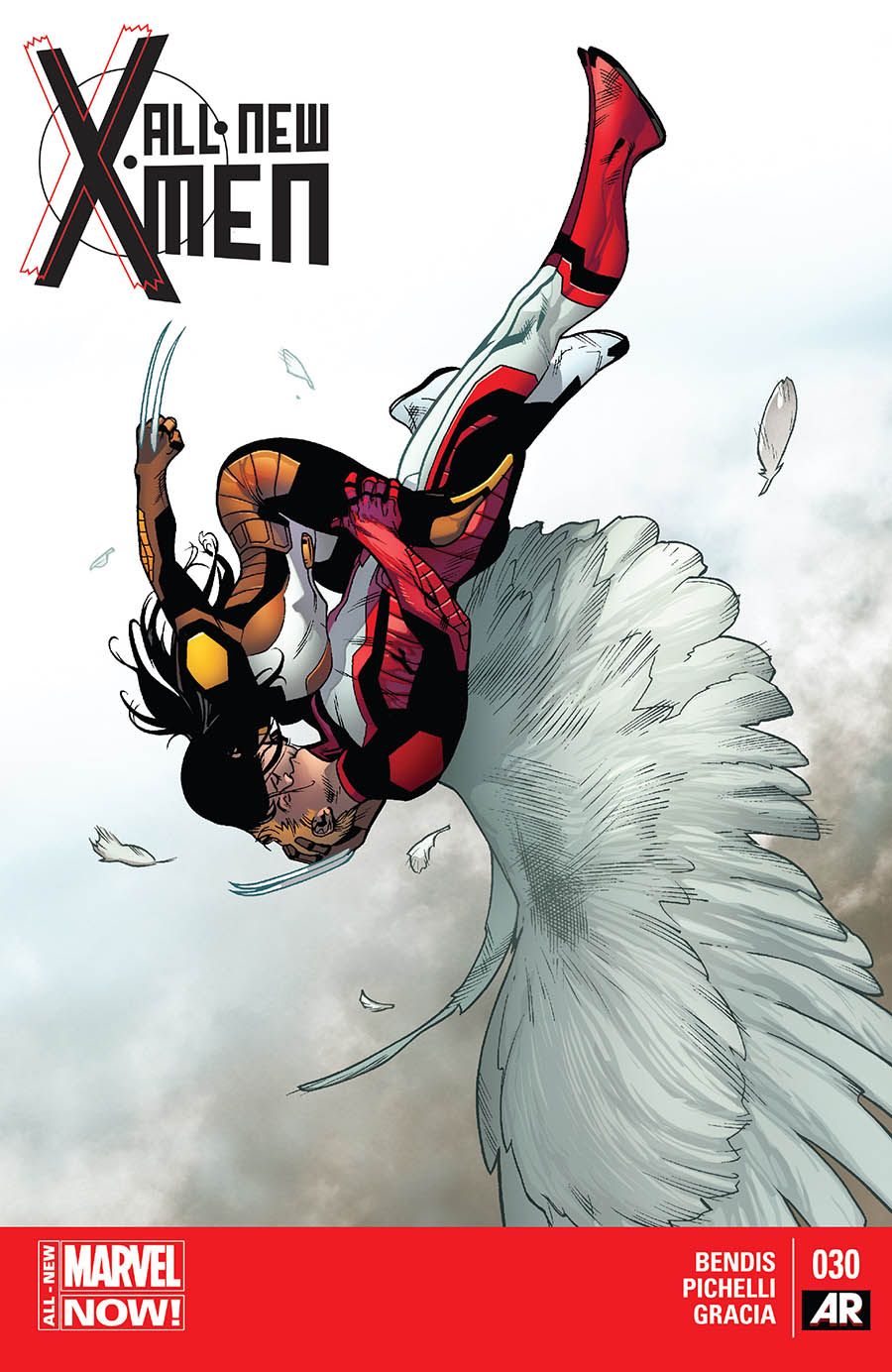"All-New X-Men" #30 by Brian Michael Bendis and Sara Pichelli should, at a glance, be truly fantastic. Bendis' basic plot (Angel and X-23 spend time together, while Jean Grey and Emma Frost finally have it out) sounds strong, and Pichelli's art is typically amazing. But at the end of the day, while one half of the book does the heavy lifting, the other half isn't as wonderful as expected.
We'll cut to the chase here: Pichelli's the all-star here. No matter what Bendis gives her to draw, she nails it with soft lines, gentle expressions and some strong panel-to-panel transitions. Just look at Kitty and Illyana's expressions as Emma and Jean walk off with their arms around one another. It's a beautiful mix of incredulousness and trepidation, and it sells the moment wonderfully. Likewise, the three-page silent sequence with Angel and X-23 in the Black Out Club is the sort of thing you can follow without a single piece of dialogue, with jealousy, anger and victory just radiating off the page. Pichelli's a great choice in general for "All-New X-Men" since -- like Stuart Immonen and Wade von Grawbadger -- her art has a grace to it that has become this title's signature.
On the other hand, Bendis's story -- it's not bad, not by any stretch of the imagination, but it's just sort of there. The ultra-decompressed nature of "All-New X-Men" is at times frustrating, but here we get something worse: events constantly happening off-panel. Jean and Emma's big mental battle is not only not seen, it's never even explained. Likewise, the relationship between Angel and X-23 seems to have had more development when we weren't seeing them than when we are. I like the flush of early love that Bendis presents, but it still feels remarkably out of the blue in this comic.
At its heart, "All-New X-Men" #30 shows that the title is now more than ever nothing more than a second issue of "Uncanny X-Men" on any given month. It feels like storylines that solely belong to this title are being given short shrift, in favor of those with the parent title. That's probably not bad for someone who's reading all of the X-Men titles, but if you're only picking up "All-New X-Men," that's a bit of a problem. There can be a way to tie all of the books together while still making them each separate and unique (the "triangle numbering" era of the "Superman" family of books in the early '90s is a fantastic example), but so far it's not quite here. That's a shame. "All-New X-Men" has a great core concept, good artists, a fun cast -- it would be nice if it could just focus on its own storylines.

